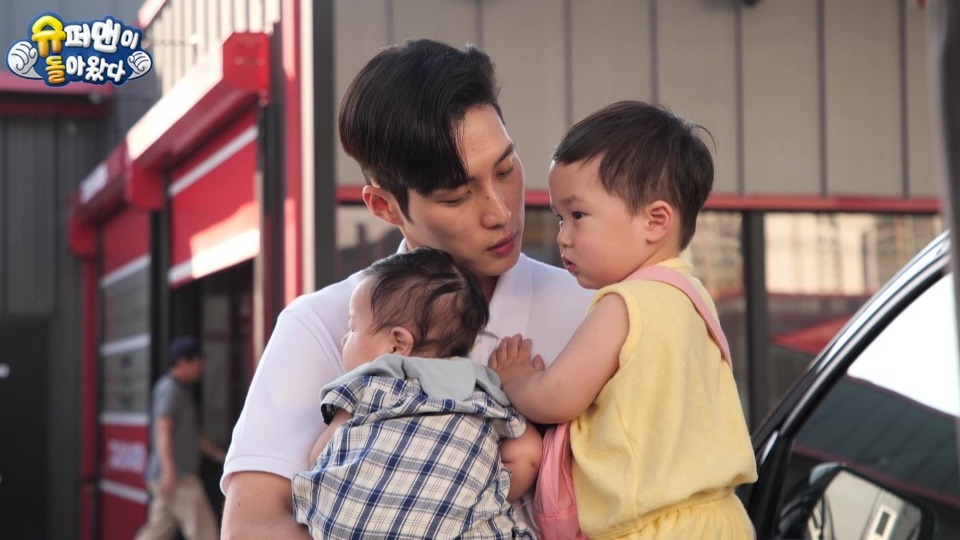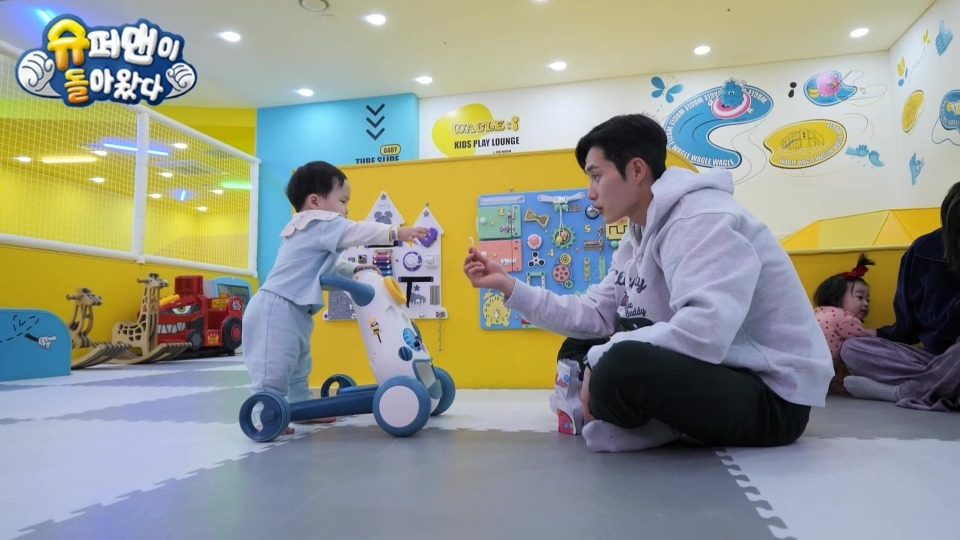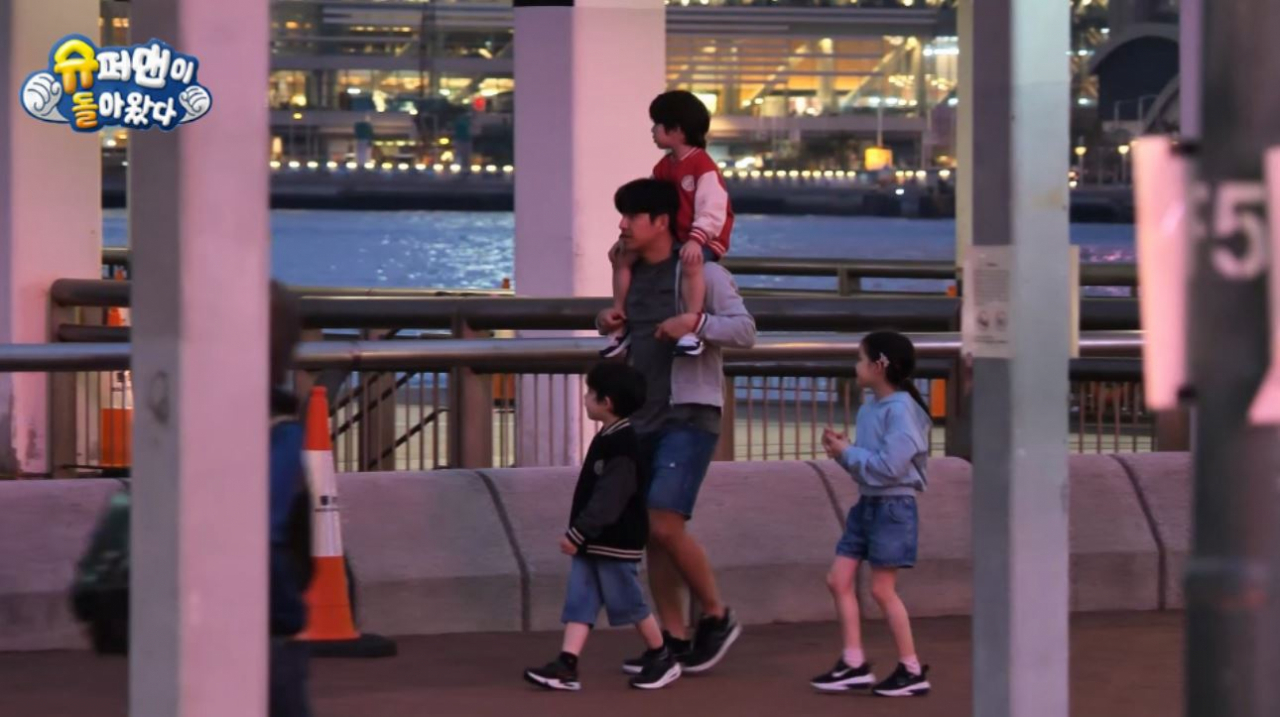Choosing children over career: Fatherhood changing in modern Korea
Men’s gradual pivot to parenting comes in line with women’s career progress, past paternal trauma, experts say
By Park Jun-heePublished : Nov. 20, 2023 - 15:31

A 37-year-old executive at a tech startup in Seoul surnamed Choi made what seemed a bold decision after welcoming the birth of his first child two years ago: he took three months of paternity leave.
At first, he was worried about the looks he would get at the office, not to mention missing out on a promotion and pay raise, as well as being perceived as being less committed to work than his peers.
But Choi’s choice came with multiple benefits.
“I had plenty of time to bond with my son and make memories to cherish, which I would say were invaluable things money can’t buy, although I doubt if he will remember later,” Choi told The Korea Herald.
Even though it was only for three months, choosing to prioritize his child over his career during that time was daunting for him, but Choi didn’t want to pass down the empty feeling he recalled from his own childhood to his newborn son.
Growing up as a latchkey kid whose parents worked full-time, Choi had struggled when he was little staying home alone. That was when he needed his parents’ unconditional love and care the most, but he was sent to study in the US alone once he hit puberty.
“I decided to engage in parenting for my child’s cognitive, emotional and social development. Also, being an executive offers a more fluid work schedule, which allows my wife, who works at a multinational company, to do her job without having to focus too much on child care and house chores,” Choi said.
After returning from his three months of paternity leave, he sees himself waking up early in the mornings to make breakfast for his son and get him ready for day care while his wife works. Once he finishes this early morning multi-tasking, Choi heads to work at around 10 a.m. -- an hour later than most office workers here.

“The stigma persists that men are ‘less nurturing’ and ‘less domestically adept’ than women. But social norms are changing, so we should too,” Choi said.
In Korea, which has historically followed Confucian principles dividing labor in the family by gender, men were expected to work outside the home as the breadwinners, while women were expected to do all of the housework and child rearing. But fathers like Choi are becoming increasingly common.
According to the latest Ministry of Employment and Labor data released in April, 131,087 people in 2022 took paid parental leave, of which men accounted for 37,885, or 28.9 percent of the total. The survey was conducted on parents of children from newborns to 8-year-olds.
Although men who take paternity leave are still in the minority, this figure shows a nearly fourfold increase from 8.5 percent in 2016, 13.3 percent in 2017 and 17.8 percent in 2018. In 2019, the figure surpassed the 20 percent mark for the first time, standing at 21.2 percent, and marked 24.5 percent in 2020. In 2021, some 26.2 percent of men went on paid paternity leave.
Men who are employed full-time in Korea can take up to 52 weeks of paternity leave if they have given birth to or adopted a child, provided they are in a heterosexual couple or a single parent.
As fathers taking care of children alone was not a common scenario a decade ago, the men's babysitting television program, “The Return of Superman,” launched in 2013 was a surprise to many.
The program revolves around celebrity fathers who rarely have time to interact with their children, taking care of their kids on their own, giving them a chance to experience parenting as they go through their wives’ to-do lists.
The show, which has now run for a decade, gained attention for showing how men struggle to care for their children on their own, striking a chord with many parents here.
Actor Song Il-kook, also known as a father of triplets, former soccer player Park Joo-ho and South Korean national fencing team’s Kim Jun-ho are among the celebrities who have starred on the show.

Experts say the slow shift in attitudes around gender roles and women entering the paid workforce have gradually made modern-day fathers into more active parents.
Huh Chang-deog, a professor in the department of public policy and leadership at Yeungnam University, noted that the number of dual-income families has risen as more women with advanced degrees land jobs.
“Both men and women work (these days), so there’s no point in dividing what each gender should do when it comes to housework, child-rearing or who should earn money,” Huh told The Korea Herald.
“In particular, the younger generation -- those in their 20s and 30s -- have a stronger awareness than those in their 40s that parenting and household chores should be done equally by both genders,” he said.
The number of dual-income households in Korea stood at 5.84 million in October 2022, up 20,000 from a year earlier, according to data released by Statistics Korea in June. However, the number of dual-income households with children in the same period was 2.16 million, down 79,000 from 2021.
Huh also said fathers are increasingly becoming more involved in father-child relationships because of inadequate or poor relationships they had with their own fathers.
“There’s a high probability that many of them missed out or did not receive enough love or affection from their fathers while growing up, as they were strict and cold or, at times, even beat their children. Dads today don’t want to pass on what they’ve experienced,” Huh explained.
In the long term, Huh believes Korean men’s gradual pivot to being willing to take time off and participate in child-rearing to spend more quality time with their children will boost the waning birth rate, as he thinks it will encourage women to get interested in having kids.
“Women are hesitant about having a baby because they fear they will be the ones solely taking care of a child and later have to quit their jobs to do so. But it will be a different story when women can share caregiving with their partners,” he noted.

Kim Joong-baeck, a sociology professor at Kyung Hee University, echoed that the shift in family commitments comes as many women become financially independent from their partners.
“Men used to spend most of their time in the workplace when they were the only breadwinners, but leadership of households has shifted to women after they started entering the workforce, as in some cases they even out-earn their husbands,” Kim told The Korea Herald.
Those women usually have a solid “family first” mindset and want their employed male partners to be more family-oriented, unlike their fathers, according to Kim.
“It’s a positive signal that Korean society is slowly starting to embrace these changes in gender roles, although there’s still a long way to go,” Kim said.





![[Graphic News] Number of coffee franchises in S. Korea rises 13%](http://res.heraldm.com/phpwas/restmb_idxmake.php?idx=644&simg=/content/image/2024/05/02/20240502050817_0.gif&u=)



![[Robert J. Fouser] AI changes rationale for learning languages](http://res.heraldm.com/phpwas/restmb_idxmake.php?idx=644&simg=/content/image/2024/05/02/20240502050811_0.jpg&u=)








![[Eye Interview] 'If you live to 100, you might as well be happy,' says 88-year-old bestselling essayist](http://res.heraldm.com/phpwas/restmb_idxmake.php?idx=652&simg=/content/image/2024/05/03/20240503050674_0.jpg&u=)
